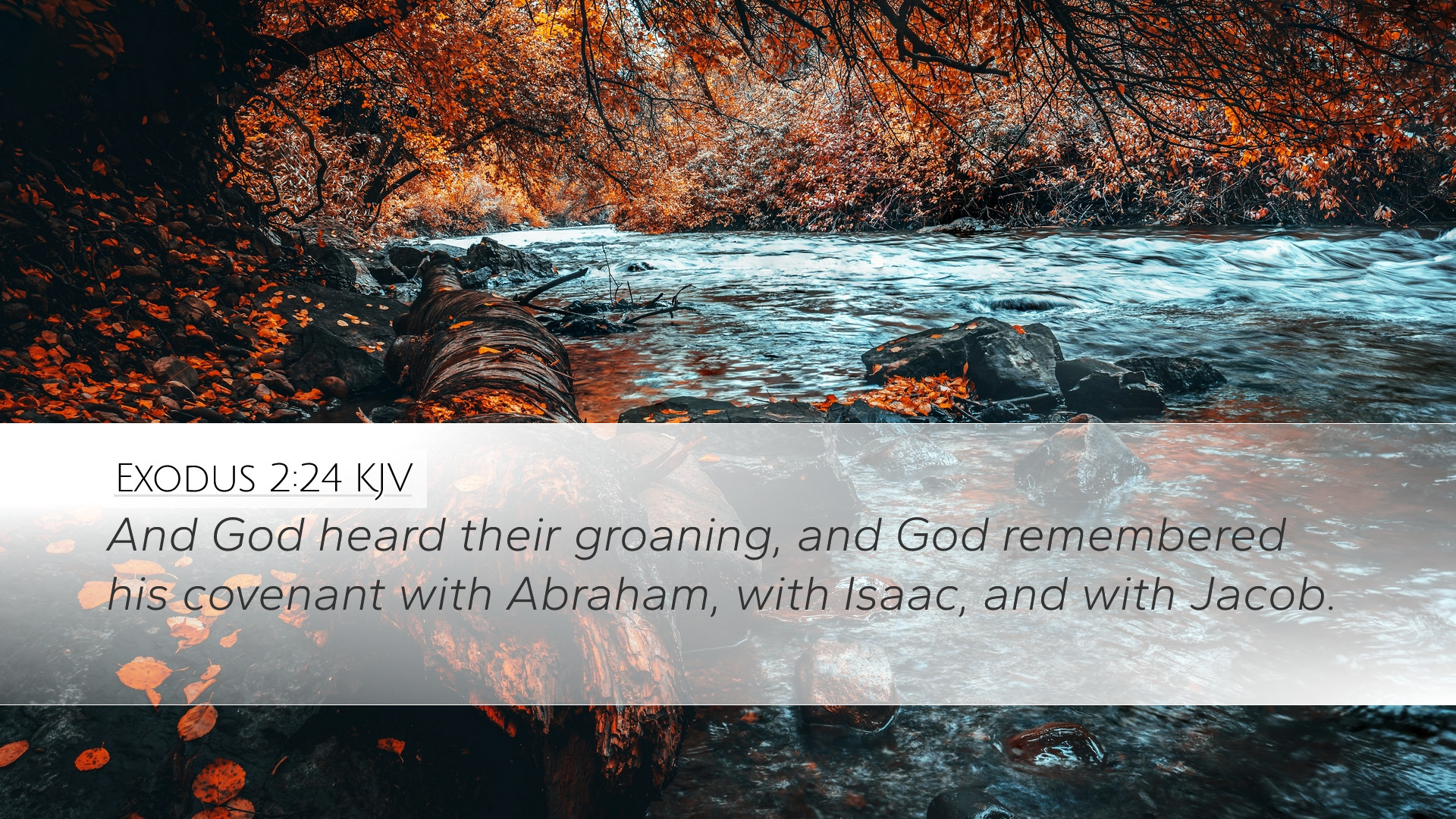Commentary on Exodus 2:24
Verse Text: "And God heard their groaning, and God remembered his covenant with Abraham, with Isaac, and with Jacob."
Introduction
Exodus 2:24 marks a critical point in the narrative of the Israelite captivity in Egypt. It reveals a divine response to human suffering and establishes a theme of covenant faithfulness. Throughout public domain commentaries, scholars such as Matthew Henry, Albert Barnes, and Adam Clarke provide valuable insights into the significance of this verse.
Theological Insights
This verse emphasizes the following theological aspects:
- God’s Awareness: The phrase "God heard their groaning" signifies not only His awareness of their plight but also His compassion towards His people. Henry notes that God is not indifferent to the suffering of humanity, highlighting divine empathy.
- Divine Memory: The term "remembered" indicates a faithful adherence to God’s promises. According to Clarke, this remembrance is not forgetfulness, but a divine action that brings covenant commitments to fruition.
- Covenantal Relationship: The reference to Abraham, Isaac, and Jacob underscores the ongoing nature of God's promises. Barnes elaborates that God's faithfulness to His covenant is central to His interactions with the patriarchs and remains relevant to their descendants.
Historical Context
The Israelites had been in Egyptian bondage for several generations by the time of this verse. Their suffering had reached a pinnacle, and God's response through this acknowledgment of their cries is of paramount importance. According to Henry, these groanings are understood as a plea for mercy and deliverance from oppression.
God’s Compassion and Deliverance
The groaning of the Israelites serves as a catalyst for God's action. This is significant in theological discourse, as it illustrates the interplay between human sorrow and divine deliverance. Henry comments on how God’s compassion is a result of His covenant promises; He is obligated out of love and faithfulness to intervene.
The Role of Prayer and Supplication
Writing on the significance of the Israelite cries, Clarke asserts that prayers and supplications, however desperate, reach the ears of God. The groaning is depicted as an authentic form of prayer, voicing a deep yearning for liberation. This encourages believers to express their sufferings to God in sincerity and faith.
The Importance of Covenant Faithfulness
The notion of God remembering His covenant emphasizes the continuity of His promises throughout generations. Barnes notes that God’s remembrance is a powerful assurance for the Israelites, reminding them that their survival and future depend on a divine commitment made long ago.
Conclusion
Exodus 2:24 encapsulates profound truths regarding divine compassion, the efficacy of prayer, and covenantal faithfulness. As scholars and theologians delve into this verse, they unearth both the historical context and the rich theological implications that continue to resonate within the Christian faith today.
Reflection
This verse prompts reflection on how contemporary believers view suffering and divine intervention. As God was responsive to the cries of the Israelites, so too is He attentive to the cries of His people today. The rich reminder of God’s covenant assures believers of His unwavering commitment, urging them to trust in His timing and methods of deliverance.


